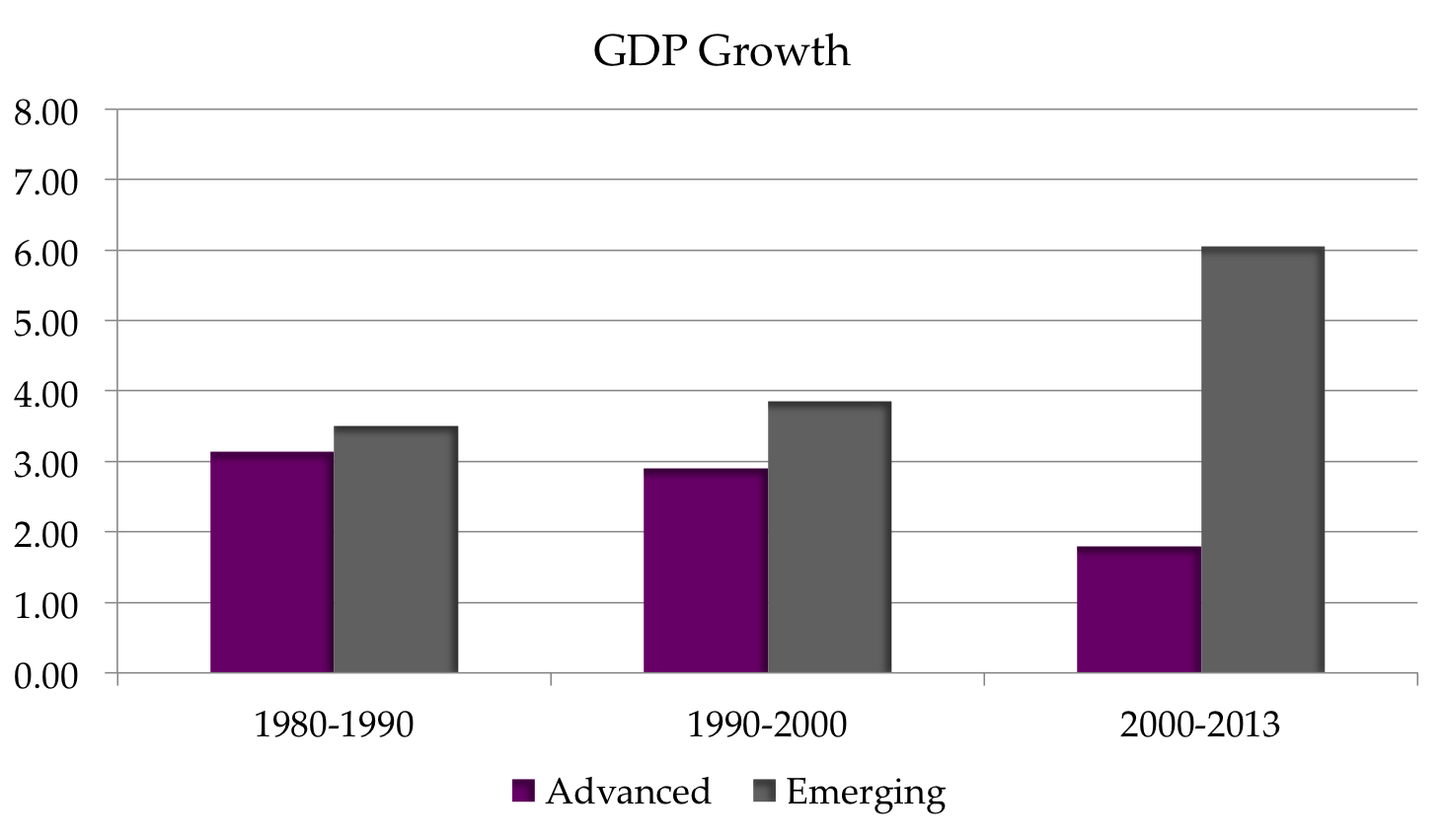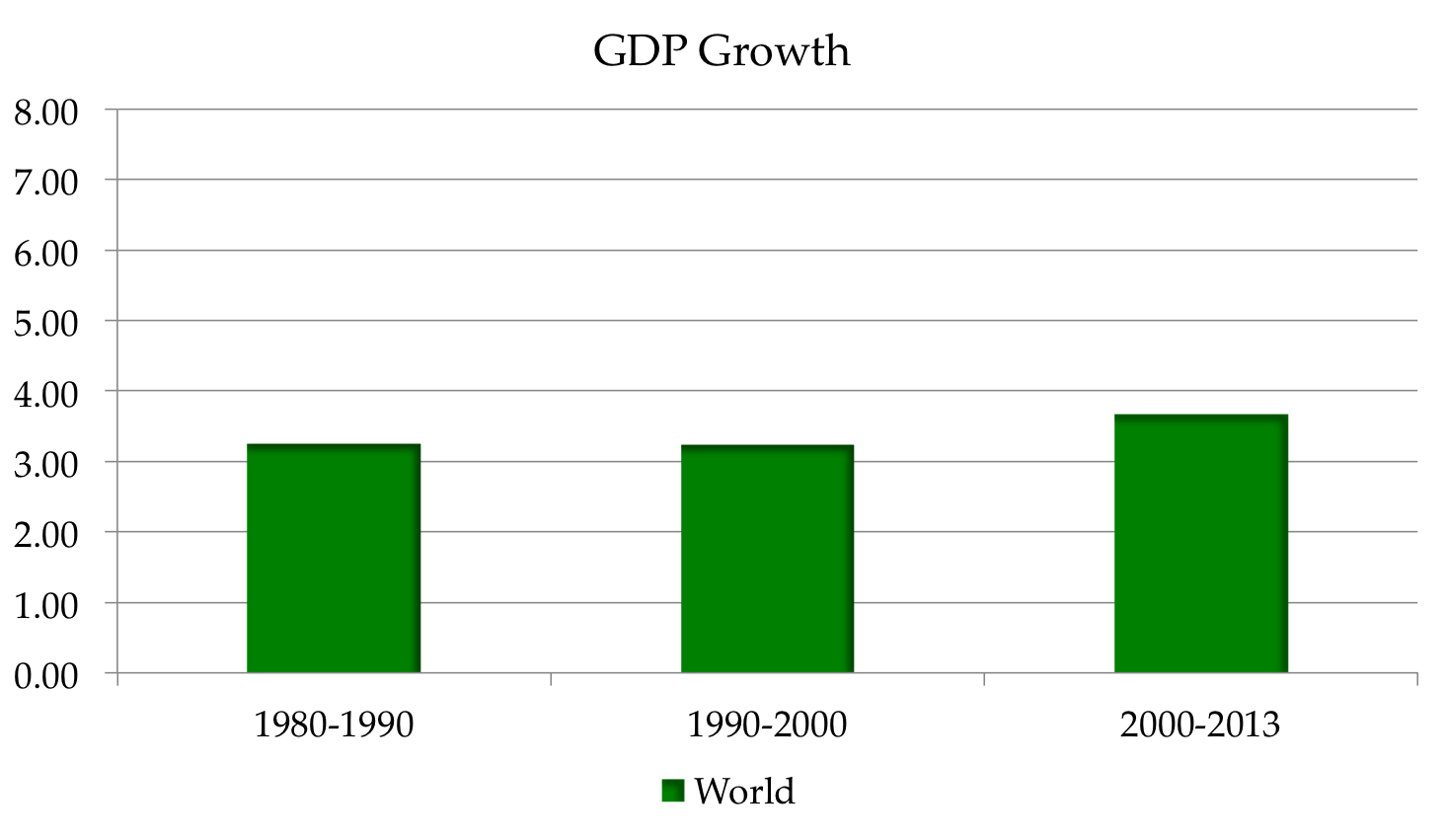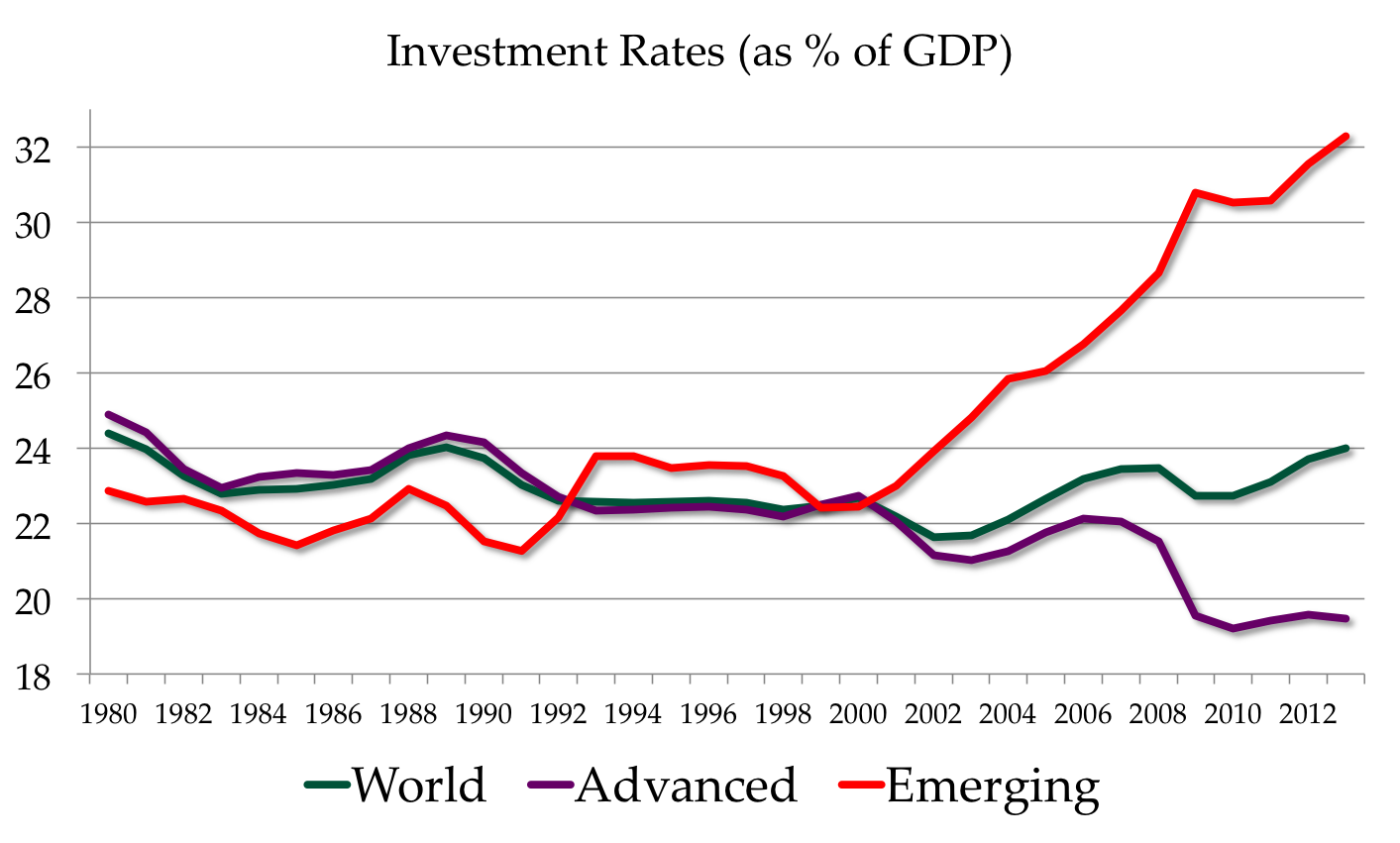The notion that some countries are caught in a long and protracted period of low growth has received an increasing amount of attention and has been labelled "secular stagnation". The pessimism that the idea of secular stagnation has created has been reinforced by the notion the potential for emerging markets to grow is becoming weaker. The point that I want to make in this post is that one of these notions (secular stagnation) is looking backwards at the performance of advanced economies while the other one (potential pessimism about emerging markets) is looking forward and speculating with their inability to do as well as in the last decade.
Let's start with a simple chart that summarizes the pattern of annual growth in the world over the last decades. Data come from the World Economic Outlook database (IMF). I have decided to include the last 13 years for the decade that starts in 2000.

And if we look at the engines of growth, in particular investment rates (in physical capital) we can see again the divergence in performance.
Looking at the above charts, one wonders whether the divergent performance of emerging markets and advanced economies is related. Could it be that investment opportunities in emerging markets moved capital away from advanced economies? Not obvious because we know that the explosion in investment rates in emerging markets came in many cases with even larger increases in saving rates and (financial) capital flew away from these countries. In fact, interest rates in the world were trending downwards during this period. And this makes the performance of advanced economies even more surprising: despite a favorable environment in terms of low interest rates, investment and growth declined.


